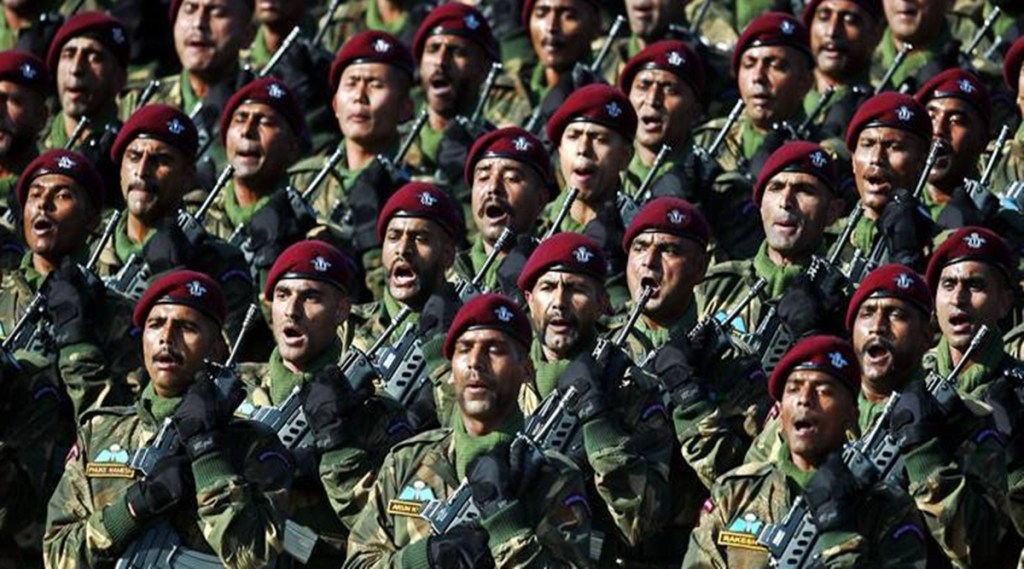By VP Singh Badnore and Pradeep S Mehta
Over 10 lakh have already applied for recruitment to the armed forces under the Agnipath programme announced on June 14. This shows the confidence of our youth and their aspirations.
Agnipath introduces short-term armed forces enlistment. Following its announcement, protests erupted in many states, with the youth taking to the streets to express their dissatisfaction. Instead of politicising the issue, it should have been welcomed as a reform for all it offers.
Agnipath offers the recruitment of youth aged 17.5-21 years for four years with a provision to retain 25% of them for 15 more years. Subsequently, the government extended the upper age limit to 23 years for recruitment in 2022. A similar youth-focused scheme for training and employment with armed forces was proposed by us a few years ago as a National Youth Empowerment Scheme (N-YES). Both Agnipath and N-YES seek optimisation of India’s unparalleled demographic dividend. N-YES was proposed as a catalyst for creating a cadre of self-disciplined, self-confident, and nationalist youth, deeply aware of their roots and digitally-trained. With Agnipath essentially bringing in the same benefits, it is a step in the right direction. The programme envisions solving youth unemployment, especially in rural India.
Conscription and selective enlistment schemes are well-established in countries such as Israel and Russia. It is a tried and tested reform for having a youthful and agile army. A study of the links the social effects of conscription in Israel, the mandatory military service in the Israel Defense Forces of about three years that all Israeli youngsters go through, with the Israeli hi-tech boom. The study notes that this short-term military service “cultivates new skills (human capital), new social networks (social capital), and new social norms and codes of behaviour (cultural capital)”. That yields what the researchers call “military capital”.
In Start-up Nation: The Story of Israel’s Economic Miracle, authors Dan Senor and Saul Singer highlight that the mandatory military service is one of the most significant factors that turned Israel into a hub of innovation and entrepreneurship. It is also interesting that a huge proportion of young Israelis show an inclination for higher education after their compulsory military service.
Finnish academic Jukka Määttä found that military service develops general skills useful “in any sector, such as adaptation, managing and social skills”. These skills are valued in the modern workforce. A Harvard study notes that due to disruptive innovations in the market, there has been a shift towards unconventional jobs. N-YES had the foresight for such an eventuality, and Agnipath will bring the same benefits.
Conduct with dignity and discipline are associated with Indian armed forces. Training with the armed forces will equip young citizens with key values that cannot be taught as a part of the school curriculum. It is a great opportunity for the youth to start their career in a very disciplined ecosystem and build key skills for their future career. They will learn assorted skills and imbibe the ethos of the forces like team-work, focus and perseverance.
The Ukraine war has proved the importance of trained civilians. N-YES and Agnipath can potentially give India a combat-ready section for war-time and peace, especially in disasters needing relief and rescue. So, it should be appreciated that discharged Agniveers will constitute a potential reserve youth army among civilians.
The military is revered and venerated for the role it plays in national security. The most important aspect and potential impact of Agnipath recruitment is that the forces will take a small step towards becoming a citizen’s army. It will facilitate the youth’s understanding of the military, minimising the military-civilian divide.
Even for India’s larger strategic and military interests, it is evidently a good step. It will result in raising resources for modernisation of the armed forces within India’s tough budget constraints. It will lower the exchequer burden for the pension expenses. Moreover, even in the armed forces, the existing average age of Indian soldiers is 32 years, while in the UK, USA and France it is 26, 27 and 27.4 years, respectively.
The protests againstAgnipath were not necessarily attributable to the merits of the programme. To quell fears, the government has subsequently announced support measures and a series of concessions for the Agniveers who would be decomissioned in each batch. With training from armed forces, they would be an asset to various organisations.
Such revolutionary reform requires large scale social adjustment. Public consultations and information dissemination through media should be used to create awareness. In a democracy, there are bound to be differing perspectives on major transformative changes. Challenging the status quo is necessary and hard, so the political will should be lauded. We believe the vision of Agnipath will yield dividends for building a better India.
VP Singh Badnore & Pradeep S Mehta, respectively, former governor of Punjab and administrator of Chandigarh UT, and secretary-general, CUTS International. With contributions from Shiksha Srivastava, CUTS.

